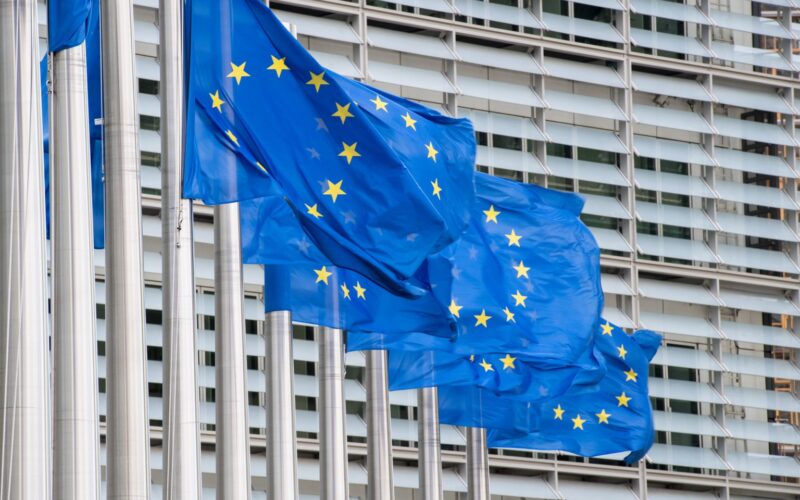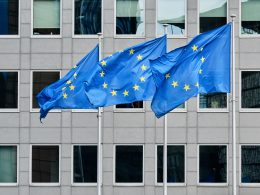The European Union is preparing to roll back key elements of its planned ESG regulations, following growing criticism that the measures are hindering the bloc’s economic competitiveness against the United States and Asia.
According to documents seen by a media house, the European Commission, the EU’s executive body, is set to announce significant changes to ESG-related regulations, including corporate sustainability reporting and supply chain due diligence. The final proposal is expected to be made public on Wednesday.
The move follows mounting pressure from both within and outside Europe to soften ESG legislation. The decision is expected to have major implications for the global ESG landscape, as Europe currently accounts for over 80% of the world’s ESG fund assets.
Germany and France, the EU’s two largest economies, have strongly advocated for reducing the regulatory burden on small and mid-sized companies, citing concerns over economic slowdown. France’s government went as far as to describe corporate ESG reporting requirements as a “hell” for affected businesses.
The EU’s decision comes as the United States undergoes a shift towards deregulation under President Donald Trump, who has dismantled several of his predecessor Joe Biden’s green policies and prioritised protectionist trade measures.
The US has also directly pressured the EU to scale back ESG regulations. Recently confirmed US Commerce Secretary Howard Lutnick indicated last month that Washington is prepared to use “trade tools” to prevent American firms from being disproportionately affected by the EU’s Corporate Sustainability Due Diligence Directive (CSDDD).
According to David Carlin, former head of risk at the United Nations Environment Programme Finance Initiative, the proposed revisions represent a “major rollback” of Europe’s ESG agenda.
The proposed changes to the EU’s ESG regulations include significant rollbacks in corporate sustainability oversight. Companies will face reduced obligations to monitor the ESG risks of their suppliers, business partners, and customers, easing supply chain due diligence requirements. Legal accountability is also being weakened, with a proposal to scrap provisions that would have held companies liable for ESG violations within their value chains. Additionally, corporate reporting requirements under the Carbon Border Adjustment Mechanism (CBAM), which imposes levies on imports like steel and cement from countries with weaker climate policies, will be softened.
Smaller firms will be largely exempt from the full scope of the Corporate Sustainability Due Diligence Directive (CSDDD) and the Corporate Sustainability Reporting Directive (CSRD), as the commission proposes applying the rules only to companies with over 1,000 employees and annual revenues exceeding €450 million. This adjustment would exclude approximately 85% of the companies originally targeted. Furthermore, the implementation of ESG reporting requirements may be delayed by a year, with planned adjustments to audit and climate transition plan mandates to ease compliance burdens.
While the concept of double materiality—which requires companies to assess both their financial ESG risks and broader environmental and social impacts—remains in place, it would apply to fewer firms under the revised rules.
A spokesperson for the European Commission declined to comment on the leaked documents. However, ESG experts and green lawmakers have been quick to criticise the proposed changes.
Anna Cavazzini, chair of the EU Internal Market Committee, rejected the idea that ESG laws are responsible for Europe’s economic struggles.
“It is an illusion to think that dismantling sustainability laws will solve the structural problems of the economy,” she said. “These challenges stem from China’s economic expansion, a lack of innovation, high energy prices due to the war in Ukraine, and insufficient investment—not from ESG laws that are not even in force yet.”
The European Sustainable Investment Forum (Eurosif) also warned that the changes could weaken investor confidence and slow progress on climate finance.
Aleksandra Palinska, Eurosif’s executive director, described the revisions as “drastic”, arguing that they would limit access to reliable ESG data and hinder investment in decarbonisation efforts.
The European Commission is set to unveil its final “omnibus” ESG proposal on 26 February, addressing key regulations including CSDDD, CSRD, and the EU Taxonomy Regulation.
While some industry figures have welcomed the adjustments as necessary, others warn that they amount to deregulation rather than simplification.
Maria van der Heide, head of EU policy at non-profit ShareAction, described the shift as “reckless”, accusing policymakers of quietly dismantling crucial sustainability laws.
“Sustainability laws designed to tackle the most pressing crises—climate breakdown, human rights abuses, corporate exploitation—are being crossed out behind closed doors and at record speed. This is not simplification, it’s pure deregulation.”
As Europe prepares to unveil its revised ESG framework, the outcome could have far-reaching consequences for businesses, investors, and the broader push for sustainable finance worldwide.


















